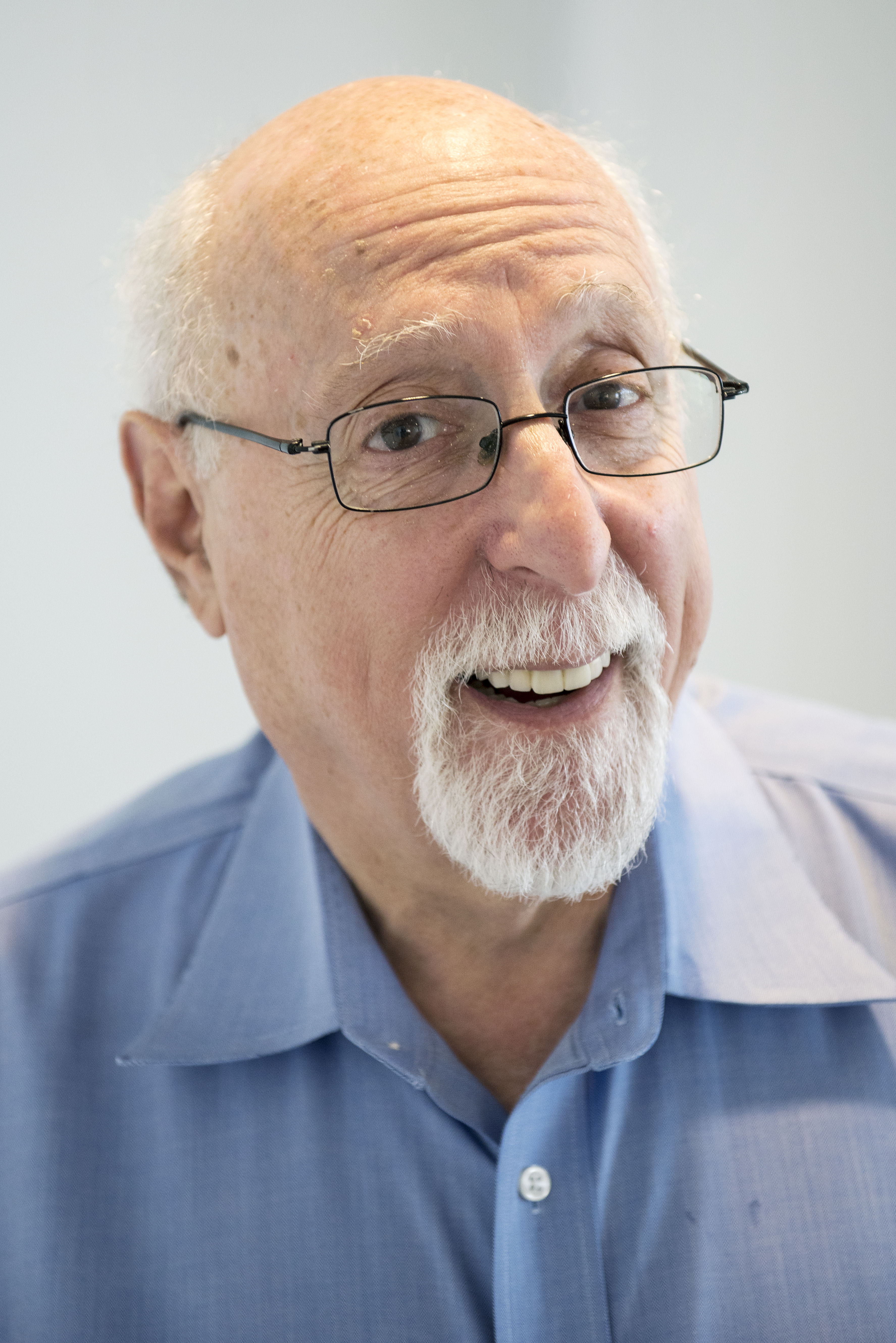![How Recode's Walt Mossberg became a digital native [video : 87217458]](http://videos.usatoday.net/Brightcove2/29906170001/2016/07/29906170001_5027860513001_5027674071001-vs.jpg?pubId=29906170001)
Before the Internet and YouTube pundits, Walt Mossberg was plugging away at The Wall Street Journal, pioneering a new journalistic genre: technology reviews.
After 18 years of covering national and international affairs, Mossberg, tired of traveling, began writing about personal technology in 1991 with hopes of making the arcane topic more accessible to readers. The opening line of his debut Personal Technology column: "Personal computers are just too hard to use, and it isn't your fault."
His columns, in plain, readable English but chock-full of information useful for the geekiest of geeks, have won him legions of fans, critics and respect from the highest levels of Silicon Valley. Wired magazine once called him "The Kingmaker." Funded by the WSJ’s then-parent company, Dow Jones, he and a Journal colleague, Kara Swisher, launched a tech news website, AllThingsD, and a popular technology conference under the brand.
Unable to land the resources they wanted, Swisher and Mossberg struck out on their own and created a competitor site, Recode.net, in January 2014, backed by funding from NBCUniversal and former Yahoo CEO Terry Semel.
![NBCUniversal invests in tech site by Mossberg, Swisher [oembed : 87179912] [oembed : 87179912] [oembed : 87179912] [oembed : 87179912] [oembed : 87179912] [oembed : 87179912] [oembed : 87179912] [oembed : 87179912]](/Portals/_default/Skins/PrestoLegacy/CommonCss/images/smartembed.png)
About a year ago, Mossberg quit being an entrepreneur when Recode was sold to Vox Media, the digital news publisher that owns tech-and-culture site TheVerge.com, sports blog network SB Nation and news-explainer site Vox.com.
Mossberg recently spoke to USA TODAY about the transition, the joys of once again being an employee, Recode’s fit at Vox, his love of podcasts, and the future of digital journalism. His comments have been edited for clarity and length.
Q: How has the Vox acquisition changed your work?
I’ve been in management a really long time, and I took the opportunity of this acquisition to say, ‘I don’t want to be management anymore.’ I'm really quite happy. I have a podcast (at The Verge) that’s doing well, Ctrl-Walt-Delete. I still do my CNBC gig (working as commentator on technology). I’m still the co-executive producer of the Code Conferences (Recode’s tech conference). I'm just happy writing my columns and doing my podcasts. I am particularly enjoying our podcasts.
Q: How has Vox’s acquisition affected Recode’s operations?
They (have) resources that would have cost (Recode) a fortune. We’ve got a terrific publishing platform, a very large sales force, a very large creative studio, video and podcasting assets, and a huge team of developers. (At Recode), we had two developers and three salespeople. We couldn‘t have raised enough money to keep up with the race. Vox has a wonderful formula — hiring a lot of the right people and doing high-quality work. They’re flexible and fast. They’re willing to say, ‘OK, business has moved over this way and we need to move with it.’ I love being part of a digital-native company like this now.
Q: Why did you sell Recode?
Being a small website is a hard proposition. In a world where BuzzFeed, Vox Media and Business Insider all are raising large amounts of money, we realized we have to raise more money. I am completely confident we could’ve done it. But Vox Media is a company that we knew well. (Vox CEO) Jim Bankoff (was someone whom) Kara and I personally knew well for more than 20 years each. The culture here at Vox was close to the culture we had at Recode. We had no exit plan. It was not a business we got into with the idea that we will get rich in five years by selling. It turned out that we had this good offer from Vox, so we took it.
![Dow Jones, AllThingsD go separate ways [oembed : 87179926] [oembed : 87179926] [oembed : 87179926] [oembed : 87179926] [oembed : 87179926] [oembed : 87179926] [oembed : 87179926] [oembed : 87179926]](/Portals/_default/Skins/PrestoLegacy/CommonCss/images/smartembed.png)
Q: Was Recode profitable at the time of sale?
No, nobody is profitable the first year. We only had one full year before we sold. But it was never in our plan to make a profit the first year.
Q: Recode ran a popular conference. Will Vox Media adopt some of the practices?
The Code Conference staff is now working across Vox Media. And they will be working on conferences that can be appropriate, exciting and journalistic. And maybe also make some money for all the other verticals — food, fashion. Vox.com is going to be the first one up.
Q: Vox already had a tech site in TheVerge.com. How are they differentiated now?
Recode (covers) the business of Silicon Valley — what's going on at Yahoo; how Tim Cook is running Apple. The Verge is much bigger, but it really doesn't cover the business side of tech very much. It covers products, trends in technology, automotive, science and entertainment. Recode had product coverage and a reviews section. After the merger, the logical thing was to take the reviewers from Recode and move them over to The Verge, where product news was. We do content sharing, and link to each other’s stories.
Q: What’s next for Recode and The Verge?
All media are moving heavily into video and live video. I've been going to almost every Apple event the last 25 years, and I've often done a video interview. But this was the first time I did a live video. (We’re) also stepping it up on what you would call off-platform publishing. I think everyone’s trying it — working with Facebook, Apple, Snapchat.
Q: What do smaller tech news sites have to do to stand out in the highly competitive field?
You have to have a combination of talent, quality and a real willingness to be fast and flexible. For example, The Verge initiated an old-style gadget blog (Circuit Breaker ) — short stories about gadgets that might not make the cut today. It must be written by somebody with the perspective of knowing how all this stuff has evolved, where does this fit in? It’s just about moving with the times, realizing there's an unfilled appetite that we can fill by doing good journalism.
.
Q: You’ve been accused of being an Apple fanboy? True?
If you asked them right now, probably not. I’ve never been. The very first piece I wrote for Recode was an attack on Apple fanboys and Android fanboys. I did write over the years many positive things about Apple products. But people forget that prior to (Apple CEO Steve) Jobs coming back and changing the company, I’ve actually written a column saying ‘Don't buy the Mac anymore’ because it had just deteriorated. And I recently wrote a piece saying all their core software has just gradually deteriorated in quality.
Q: What are the most difficult products to review?
The hardest thing is the product that could have been good and turned out to be kind of crappy.
Follow USA TODAY media reporter Roger Yu on Twitter @ByRogerYu.


![XXX MOSSBERG_030.JPG USA DC [image : 87129260]](http://www.gannett-cdn.com/-mm-/3e9978e6ef456a37217cbc261b566d1c760f24fb/c=0-1142-3549-4175/local/-/media/2016/07/15/USATODAY/USATODAY/636041798414236738-XXX-MOSSBERG-030-83294046.JPG)
